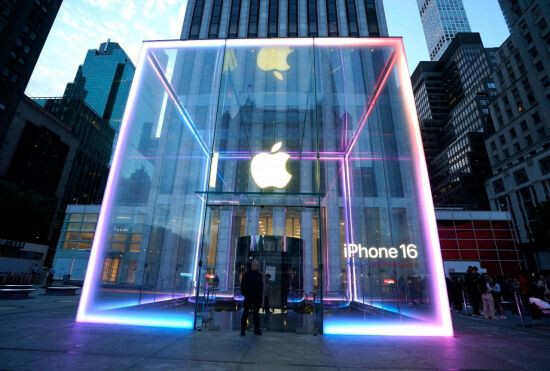
Washington D.C. – Apple's strategic move to partner with Chinese tech giant Alibaba to bring artificial intelligence (AI) capabilities to iPhones sold in China has triggered a significant investigation by the United States government and Congress, raising concerns about technology transfer, data security, and the broader implications for the ongoing tech rivalry between the two nations.
The New York Times reported on May 17th that the White House and the House Select Committee on China have been actively scrutinizing the collaboration for several months. Their primary apprehension revolves around the potential for this partnership to bolster China's AI prowess, expand its censorship apparatus, and grant the Chinese government greater access to user data.
For Apple, this alliance with Alibaba appears to be a pragmatic necessity in the face of regulatory hurdles. While the tech giant has been promoting its "Apple Intelligence" features globally, including the integration of OpenAI's ChatGPT into Siri, deploying ChatGPT in China presents significant challenges due to stringent censorship requirements. Consequently, Apple has reportedly chosen Alibaba's "Qwen" AI model as the foundation for its China-specific "Apple Intelligence," seeking approval from Chinese regulatory authorities.
However, this strategic adaptation has ignited alarm within the US government, with fears that it could inadvertently increase Apple's dependence on China and compromise American technological advantages.
Apple executives reportedly visited Washington D.C. in March to engage with the House Select Committee on China. However, sources indicate that they failed to provide clear answers to critical questions regarding the terms of the Alibaba agreement, the scope of data sharing, and the legal assurances concerning Chinese regulatory demands.
Representative Raja Krishnamoorthi, the ranking member of the House Intelligence Committee, voiced strong criticism, stating, "Alibaba is a company that epitomizes the Chinese Communist Party's military-civil fusion strategy. Apple's collaboration with them essentially aids China's AI development while disregarding the fundamental rights of iPhone users within China."
Echoing these concerns, Greg Allen, the director of the AI Center at the Center for Strategic and International Studies (CSIS), emphasized the broader geopolitical context. "The United States is engaged in an AI competition with China, and we do not want our companies assisting Chinese firms in this endeavor," he asserted.
While Apple has yet to officially announce the partnership with Alibaba, Alibaba Chairman Joe Tsai publicly acknowledged the collaboration in February, adding to the scrutiny.
This development unfolds against a backdrop of increasing difficulties for Apple in the Chinese market. Previously, the company faced government pressure to withdraw from a deal with Chinese memory chip manufacturer YMTC. Furthermore, recent tariff policies have impacted the production costs of iPhones.
Apple's iPhone market share in China witnessed a notable decline last year, falling from 19% to 15%. While various factors contributed to this downturn, the absence of integrated AI features, which are now prevalent in domestic competitors like Huawei, is considered a significant drawback.
Apple's decision to partner with Alibaba over other potential candidates, such as Baidu or SenseTime, is likely influenced by Alibaba's position as China's largest e-commerce conglomerate. This partnership could offer Apple significant advantages in distribution and marketing within the crucial Chinese market. Experts suggest that a failure to integrate AI seamlessly could lead to a fragmented user experience, requiring iOS users to download separate AI applications, potentially eroding Apple's appeal.
Nevertheless, the escalating concerns surrounding the potential military applications of China's AI technology are prompting the US to consider even more drastic measures, including potentially adding Alibaba to a trade blacklist.
In a related development, the President recently criticized Apple CEO Tim Cook during a trip to the Middle East, urging Apple to manufacture its products in the United States rather than in India. This statement reflects the administration's broader pressure on American companies to reduce their reliance on overseas manufacturing, including the reported shift of some iPhone production from China to India.
The investigation into Apple's AI partnership with Alibaba underscores the intricate challenges faced by multinational technology companies navigating the complex geopolitical landscape and the intensifying technological rivalry between the United States and China. The outcome of this scrutiny could have significant ramifications for Apple's future in the Chinese market and the broader dynamics of global technology competition.
[Copyright (c) Global Economic Times. All Rights Reserved.]






























